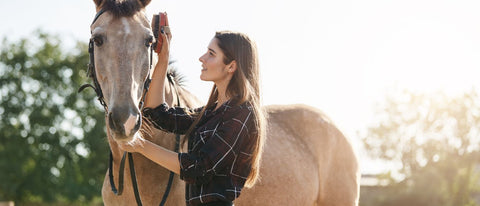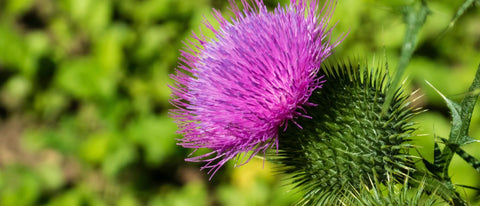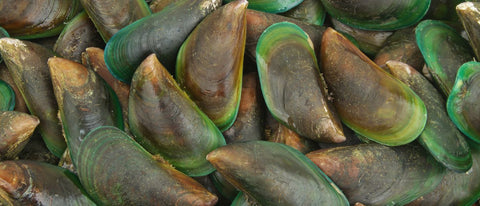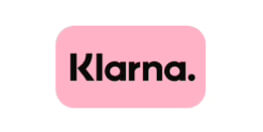
Florian ist aufgewachsen auf einem Bauernhof. Umgeben von Pferden, entdeckte er früh seine Faszination für diese majestätischen Tiere. Inspiriert von seiner reitbegeisterten Mutter, entwickelte er das Nahrungsergänzungmittel - Pferdegold. Seine tiefe Verbundenheit zur Natur und die leidenschaftliche Hingabe zu Pferden trieben ihn an, sein Unternehmen zu gründen.
There are many rumors surrounding the average age. Generally, horses live between 20 and 35 years. However, there are considerable differences in the details.
Relevant factors include the breed and size of the animal. Another factor that influences age is, of course, health. But how old do horses really get?
Nobody can predict that, because the tow horse Old Billy from Great Britain even made it to 62 years.

This is how long the life expectancy of horses is!
A horse's age is a very individual matter . Whether it's a large horse or a pony , a cold-blooded or warm-blooded horse , many factors influence its age.
However, a horse’s life expectancy can also be influenced, at least in part, by its lifestyle and diet.
Smaller horses are generally longer than their larger counterparts . Warmblood breeds are also superior to coldbloods .
| Horse species | Average life expectancy |
| Large horses | About 20 to 30 years |
| Cold-blooded animals | About 16 to 18 years (they are fully grown at three to four years of age, so life expectancy is somewhat lower) |
| Warmbloods | About 20 years (fully grown at about five years, so the statistical life expectancy is a little longer) |
| Thoroughbreds | About 25 years |
How old do horses get? Differences depending on the breed
Not only the general type or size of the horse plays a role in its life expectancy. The breed itself is also crucial —at least statistically.
Below are some examples of particularly well-known horse breeds and their average life expectancy .
| horse breed | Average life expectancy |
| Friesians | About 20 (large breed that tends to have a slightly lower life expectancy) |
| English Thoroughbred | About 20 (Thoroughbreds are usually bred for fast racing, which can lead to a shorter lifespan) |
| Arabian Thoroughbred | About 25 |
| Quarter Horse | About 25 |
| Hanoverian | About 25 (a sport horse whose life can be prolonged under certain circumstances with good care) |
| Trakehner | About 25 (similar to Hanoverians) |
| German Riding Pony | About 30 (small pony breed, which statistically usually lives longer than larger breeds) |
| Shetland pony | About 30 (robust pony breed) |
| Icelandic horse | About 30 (robust pony breed) |
| Norwegian ( Fjord horse ) | About 30 (robust pony breed) |
This table already shows that ponies at this point have the best chance of living to a particularly old age . However, any other horse can also beat the statistics and reach a ripe old age.
Although race is a relevant factor,
- attitude ,
- Movement ,
-
Care ,
Diet and other factors play a role. Horses aren't always considered ponies , at least not officially. The life expectancy of the Icelandic horse, for example, is 30 years, which is also due to its small size.
However, this breed is officially referred to as a horse and not a pony.

Perfect for your horse: Pferdegold® supplementary feed!
These specially developed supplements support your horse's diet and provide it with natural nutrients. Made in Germany, grain-free and drug-free, they come with a 30-day money-back guarantee.
Try it now!How old does a pony get?
Robust horse breeds are characterized by their resilience. They are generally adapted to harsh climatic conditions. Not all ponies are automatically robust horse breeds, but many pony breeds are generally considered robust . Examples of robust pony breeds include the Shetland pony and the Welsh pony . Since ponies usually do not reach maturity until they are seven or eight years old , they can reach a relatively advanced age—at least compared to their larger counterparts, who mature earlier. The average life expectancy of the Shetland pony, for example, is often 30 years or more.
By the way: Ponies are not only lovable and affectionate, but sometimes also stubborn . Frieda, the pony, has proven this especially true. The little lady lives in Ennepetal and is already 55 years old.

How old do cold-blooded and warm-blooded animals get?
Statistically, warmbloods tend to live longer than coldbloods because they are bred for sport and leisure and have a somewhat lighter stature. This can have a positive effect on their health.
One example is the Black Forest Coldblood , which ranks rather low with an average life expectancy of 18 to 20 years . Another coldblood, however, achieves better statistical values.
The average life expectancy for a Shire Horse is 25 to 30 years . These gentle giants are affectionately called "Gentle Giants" in England.
Theoretically, the Bavarian Warmblood should have a longer life expectancy than coldbloods , but this breed in particular is a precocious breed. The average lifespan is therefore just 20 years .
The average age of a Holsteiner (another warmblood) is 25 to 30 years .
How old do wild horses get?
At least in theory, wild horse breeds can live for around 35 years . However, today's wild horse breeds were originally just escaped domestic horses.
Nevertheless, it has shaped lives and led to a statistically higher life expectancy.
Love, happiness and freedom: What your horse really needs for a long life
In order to positively influence the average age of horses, life itself also plays a role – not just the breed and thus the genes. This primarily involves species-appropriate housing , exercise , and horse feeding .
The optimal keeping of horses
Good and, above all, species-appropriate care leads to significantly greater well-being and ultimately better health for your horse. But what does "optimal" actually mean?
-
Exercise: Horses are active animals. This means that regular grazing and sufficient free-roaming promote physical health. Exercise can also help reduce stress in horses and even have a positive effect on the digestive system .
-
Social interaction: Horses are not only active animals, but also herd animals . They need contact with their peers, as social isolation often leads to stress. This can negatively impact their health and thus their life expectancy.
-
Housing system: In an open stable, horses can move more freely and make more independent decisions. This can reduce boredom and stress.
- Care: Regular hoof care , veterinary visits , and vaccinations keep your horse healthy and reduce the risk of disease . Dental and parasite checkups are also important.
How should horses be fed
Make sure your horse has a balanced diet tailored to its individual needs. Poor nutrition, however, can lead to obesity or even nutritional deficiencies, which could also affect its health (which could then lead to a shorter life expectancy).
High-quality basic feed (hay or grass) can be fed with minerals and nutritional supplements (such as green-lipped mussels from Pferdegold).

Pferdegold® supplementary feed!
Pferdegold is a small family business from Bavaria with a big dream: to produce the best horse feed. We see ourselves as a family of equestrians who want to provide your horse with the ideal nutrition. 100% natural and perfectly tailored to your horse's needs.
Try it now!What other factors can influence your four-legged friend’s life expectancy?
Stress is also a factor that can negatively impact the life expectancy of horses.
There are many possible causes of stress, including:
- Social isolation
- Lack of movement
- Overexertion during training
- Long transports
- Sudden changes
- No optimal living conditions
- Noise
- Unrest
- Lack of social structure
- Unclear communication in handling and thus confusion of the animal
- Pains
- General health problems
- Feeding stress
- Insufficient rest periods
- Incorrect equipment and thus pressure points or pain
Even the seasons can influence the animals' well-being . Some animals are more sensitive to temperature fluctuations, so adequate protection or cooling is always necessary.
Emotional stress is also an issue for horses , for example, when they lose companions or a caregiver. Even a change in caregiver can trigger emotional stress in horses.
Conclusion
The average life expectancy for horses is 20 to 35 years. However, exactly how long horses reach varies greatly from individual to individual.
Genes are particularly relevant, because cold-blooded and warm-blooded animals, ponies or large horses, and even individual breeds, have different life expectancies.
But in the end, every statistic is just a statistic, so there are outliers in all directions. Horses' age can be positively influenced by sufficient exercise, proper nutrition, and optimal housing conditions.
The administration of supplementary feed can also help to improve well-being and thus have a positive effect on the life expectancy of horses.
IMPORTANT:
Pferdegold is not a substitute for veterinary diagnosis or treatment . The information contained in this article is for general informational purposes only and is intended to help improve your horse's well-being.
Pferdegold products do not treat or cure diseases , but rather support your horse in compensating for nutritional deficiencies through targeted nutrient intake.
However, they are not a substitute for professional advice from a veterinarian or specialist. If your horse has any health problems, we strongly recommend consulting a veterinarian. Pferdegold assumes no liability for decisions made based on the information provided here.
FAQ
How old is the oldest horse?
The world record is held by Old Billy . However, he died in 1822 at the ripe old age of 62. The horse was in service for a full 50 years. When it comes to living horses, the Shetland pony Frieda holds the edge.
In April 2024, she turned 56 years old and lives in Ennepetal, Germany. Whether she is also the oldest horse in the world remains unclear, as there is no official registry.
How old is a 20-year-old horse in human years?
You can roughly convert a horse's age into human years to determine how young or older a horse is, at least from our perspective.
However, since horses develop differently than humans and breeds must also be taken into account, there is no uniform formula for the conversion.
For example, if it's a warmblood, the conversion factor is 3.2 . For a coldblood, however, it's 4.4 . For a pony, it's even 2.3 . So, 20 human years would be approximately 64 years for a warmblood, 88 years for a coldblood, and only 46 years for a pony.
When is a horse very old?
A horse is considered a senior when it has reached the age of 18. While this may sound strange to us humans, it's actually quite realistic.
In human years, an 18-year-old horse is already around 60 years old, making it a true senior citizen. However, the average life expectancy for horses is actually 20 to 35 years.

















